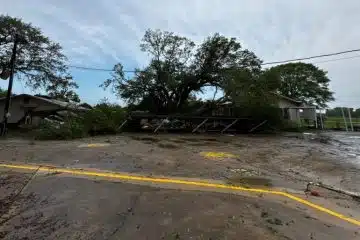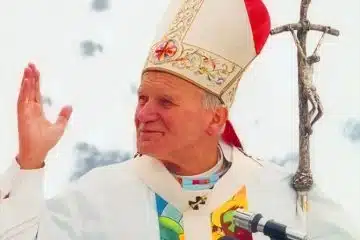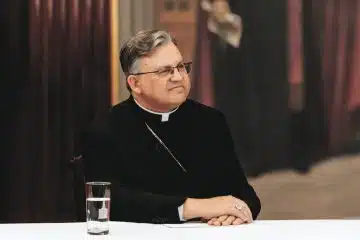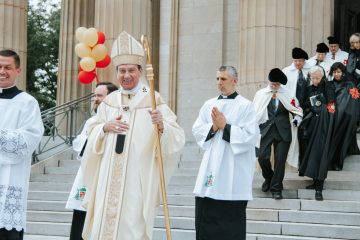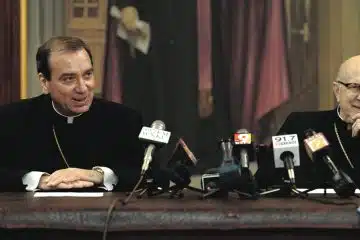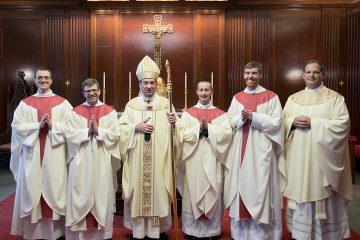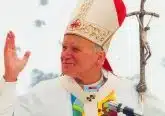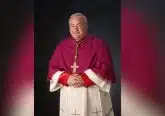Update: Pope meets Chilean abuse victims; controversy over bishop continues

IMAGE: CNS/Paul Haring
By Junno Arocho Esteves
SANTIAGO, Chile (CNS) — Pope Francis met in private Jan. 16 with survivors of sexual abuse by Chilean clergy, a Vatican spokesman said, but his actions threatened to be overshadowed by controversy over a Chilean bishop.
Greg Burke, the spokesman, said the pope met with “a small group of victims of sexual abuse by priests” at the apostolic nunciature in Santiago, Chile.
“The meeting took place in a strictly private way, and no one else was present: only the pope and the victims,” Burke told journalists that evening.
The private setting, he added, allowed the group to speak freely with the pope “and recount their sufferings.
Pope Francis “listened, prayed and cried with them,” Burke said.
Also present at the press conference was Auxiliary Bishop Fernando Ramos Perez of Santiago, secretary-general of the Chilean bishops’ conference.
Bishop Ramos addressed criticism regarding the presence of Bishop Juan Barros of Osorno at several papal events, including the pope’s meetings with the country’s clergy as well as the bishops of Chile.
Bishop Barros’ appointment as bishop by the pope in 2015 drew outrage and protests due to his connection to Father Fernando Karadima, his former mentor. Father Karadima was sentenced to a life of prayer and penance by the Vatican after he was found guilty of sexually abusing boys.
“Bishop Barros is bishop of Osorno and was named by the pope. All bishops have the right and responsibility to participate at the events. That was the only reason why” he was present, Bishop Ramos said.
Arriving in Iquique Jan. 18 at the site of his final Mass in Chile, Pope Francis was asked by local journalists about his support for Bishop Barros.
The pope reiterated that he has yet to see any evidence that Bishop Barros knew or witnessed the abuses committed by his former mentor.
“The day they bring me proof against Bishop Barros, I will speak. There is not one piece of evidence against him. It is calumny. Is that clear?” the pope told the journalists.
On Jan. 20, Boston Cardinal Sean P. O’Malley, “It is understandable that Pope Francis’ statements yesterday in Santiago, Chile, were a source of great pain for survivors of sexual abuse by clergy or any other perpetrator. Words that convey the message ‘If you cannot prove your claims then you will not be believed’ abandon those who have suffered reprehensible criminal violations of their human dignity and relegate survivors to discredited exile.
“Not having been personally involved in the cases that were the subject of yesterday’s interview, I cannot address why the Holy Father chose the particular words he used at that time. What I do know, however, is that Pope Francis fully recognizes the egregious failures of the church and its clergy who abused children and the devastating impact those crimes have had on survivors and their loved ones,” Cardinal O’Malley said.
Cardinal O’Malley was traveling to Peru on a previously scheduled trip. A spokesman for the Archdiocese of Boston said the trip was not related to his statement on Bishop Barros, but that he expected the cardinal would “be with the Holy Father at some point, as he normally is when he accompanies him on a papal trip.”
Pope Francis named Cardinal O’Malley president of the Pontifical Commission for the Protection of Minors when he established the body in 2014. The initial members’ terms of office expired in December and, as of mid-January, the Vatican had not announced new members.
Earlier Jan. 16, the pope asked forgiveness from the victims of sexual abuse during an address to government authorities and members of Chile’s diplomatic corps, expressing his “pain and shame at the irreparable damage caused to children by some ministers of the church.”
Burke said it was significant the pope addressed the issue of clergy sex abuse during his meeting with government authorities “because normally he speaks about it when meeting with bishops or priests.”
“The fact that he spoke there means that it is an evil not only for the church but for society,” Burke said.
– – –
Follow Arocho on Twitter: @arochoju.
Normal 0
false false false
EN-US X-NONE X-NONE
/* Style Definitions */ table.MsoNormalTable {mso-style-name:”Table Normal”; mso-tstyle-rowband-size:0; mso-tstyle-colband-size:0; mso-style-noshow:yes; mso-style-priority:99; mso-style-parent:””; mso-padding-alt:0in 5.4pt 0in 5.4pt; mso-para-margin-top:0in; mso-para-margin-right:0in; mso-para-margin-bottom:8.0pt; mso-para-margin-left:0in; line-height:107%; mso-pagination:widow-orphan; font-size:11.0pt; font-family:”Calibri”,sans-serif; mso-ascii-font-family:Calibri; mso-ascii-theme-font:minor-latin; mso-hansi-font-family:Calibri; mso-hansi-theme-font:minor-latin; mso-bidi-font-family:”Times New Roman”; mso-bidi-theme-font:minor-bidi;}
– – –
Copyright © 2018 Catholic News Service/U.S. Conference of Catholic Bishops. www.catholicnews.com. All rights reserved. Republishing or redistributing of CNS content, including by framing or similar means without prior permission, is prohibited. You may link to stories on our public site. This copy is for your personal, non-commercial use only. To request permission for republishing or redistributing of CNS content, please contact permissions at [email protected].



